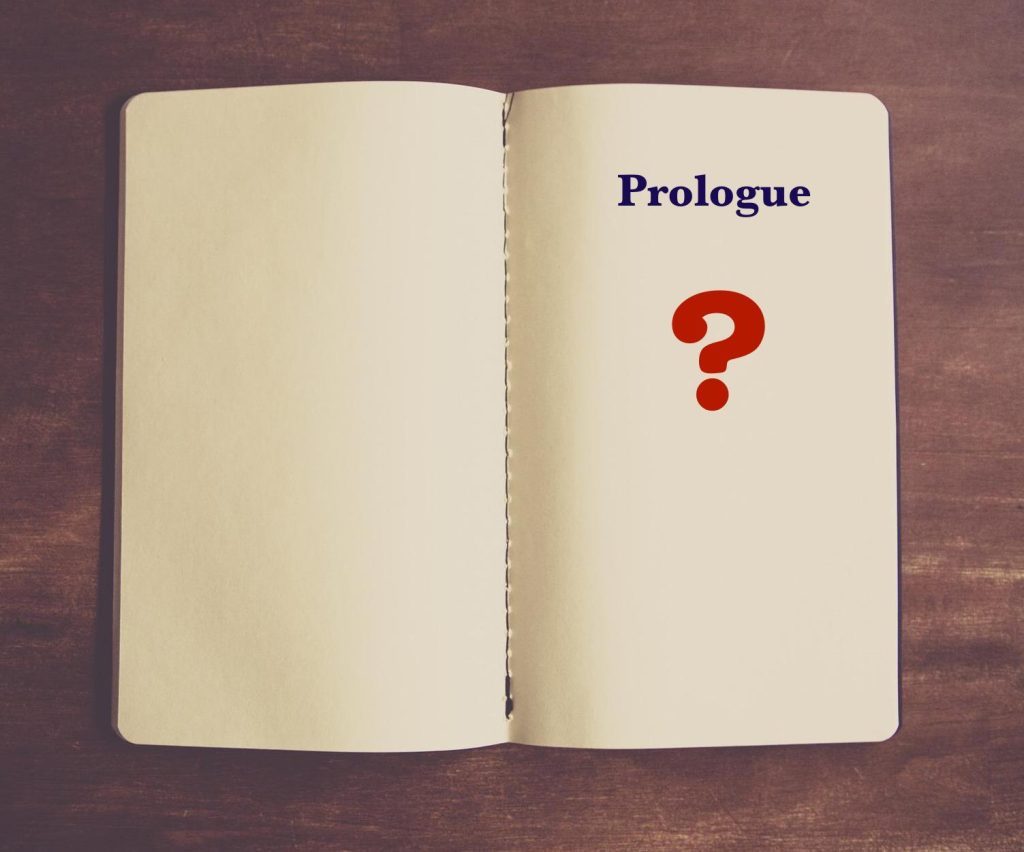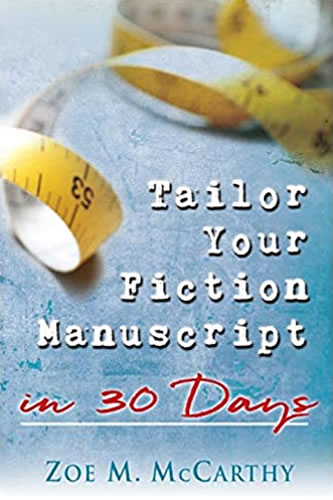

Tailor Your Fiction Manuscript in 30 Days is chock-full of practical techniques. Numerous examples clarify problem areas and provide workable solutions. The action steps and blah busters McCarthy suggests will help you improve every sentence, every paragraph of your novel. If you follow her advice and implement her strategies, a publisher will be much more likely to issue you a contract.—Denise K. Loock, freelance editor, lightningeditingservices.com
Learn more at the end of the post.
My purpose isn’t to tell how to write a prologue, but to aid a writer in deciding whether a prologue should be included.
What is a prologue?
It’s an initial scene or chapter with a beginning, middle, and end that occurs usually at a time different than the current story. Like any scene or chapter endings, the prologue should leave the reader hooked to know more.
The prologue could involve current or different characters whose brief story affects the current story in an essential way. The characters can be from a different era or within a current character’s lifetime.

Here are suggestions of edits to hunt for.
Questions to Ask Ourselves Before Including a Prologue
When a Prologue Is Not a Good Idea
- Am I looking for a place to dump information I want the reader to know because I don’t feel like creatively weaving necessary information into the story? This is a poor reason for a prologue.
- Can my prologue fit elsewhere in the story? If yes, then it should be worked into the current story.
- Do I want to tell the story of the protagonist’s wound so the reader will know why she acts like she does? This is not a good enough reason by itself to include a prologue.
- A writer needs to know the protagonist’s past wound story and how it affected the protagonist, but it’s not always important for the reader to know.
- A skillful writer will show the effects of the wound by hinting at the protagonist’s greatest fear, his inner goal, and his outer goal in the beginning of the story, and then feed in the wound story little by little in later chapters.
- Or the writer may strategically treat the wound story like an element of suspense, leading the reader along, and then revealing it in the middle of the novel to bolster a sagging middle.
- Do I want to build the story world up front so I don’t have to add a bit at a time in the current story? Long description paragraphs can be boring in the current story. Why make the reader read a prologue that’s a long description? Usually, we need to do the work to show the world as people move and act in it.
- Am I being lazy, or am I unsure how to weave backstory into other chapters?Search internet articles or books on the subject or attend a writing class.
- Will the prologue delay the reader from getting into the current story too long, causing them to skip it or put the book down for good? The prologue better be necessary, well-written, and garner the reader’s interest. If not, remove it.
- Am I unwilling to put the time into crafting a great prologue that grabs the reader and makes them want to read more? Skip the prologue.
When a Prologue May Be a Good Idea

- Will the prologue improve the current story? Dose the past event bring about the inciting incident in some way? If the past event is too big to have a current character either discover a document revealing it or a current character briefly telling the event, you may need a prologue.
- Perhaps aliens landed in the 1600s and buried something that would aid them in settling on earth on their next alien visit, but an avalanche killed them before they activated it correctly. Now, it’s worked itself to the surface and activates itself in a way the aliens hadn’t intended. How it got there isn’t important to the current story, but the current story will be believable to the reader because they know the prologue.
- If the reader skipped the prologue, would their understanding of the current story be impacted? If yes, the prologue may be necessary.
- Do I want a non-protagonist character to give his perspective on the events that’s different than the protagonist’s, but I want him to appear only once? Would a prologue be a good place for his perspective? If the non-protagonist’s perspective is important to how the reader might view the event, this could work, since he’s not going to be part of the current story.
What do you think is a good or bad reason to include a prologue?

Zoe McCarthy’s book, Tailor Your Fiction Manuscript in 30 Days, is a fresh and innovative refocusing of your novel or novella. Through a few simple—and fun—steps, Zoe helps writers take their not-ready-for-publication and/or rejected manuscripts to a spit-polish finish. Writing is hard work, yes, but it doesn’t have to be difficult.
—Eva Marie Everson, best-selling and award-winning author, conference director, president of Word Weavers International, Inc.


 RSS - Posts
RSS - Posts



Lots of good information to think through. Thanks for sharing.
Thanks, Sally Jo. We need to carefully consider if we really need a prologue.
I think you showed us pretty clearly that the most common reason for a prologue is for an information dump, to avoid the work, or lack of skill, to weave the info into the story.
Hi Jane, yes, we don’t want to keep our readers away from getting into the current story. However, sometimes a prologue can serve the current story.